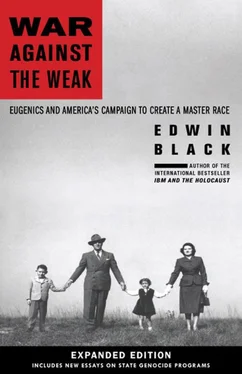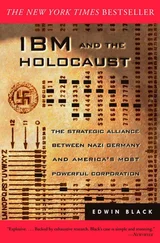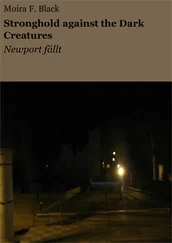Edwin Black - War Against the Weak
Здесь есть возможность читать онлайн «Edwin Black - War Against the Weak» весь текст электронной книги совершенно бесплатно (целиком полную версию без сокращений). В некоторых случаях можно слушать аудио, скачать через торрент в формате fb2 и присутствует краткое содержание. Город: Washington, DC, Год выпуска: 2012, ISBN: 2012, Издательство: Dialog Press, Жанр: История, на английском языке. Описание произведения, (предисловие) а так же отзывы посетителей доступны на портале библиотеки ЛибКат.
- Название:War Against the Weak
- Автор:
- Издательство:Dialog Press
- Жанр:
- Год:2012
- Город:Washington, DC
- ISBN:1-56858-258-7
- Рейтинг книги:3 / 5. Голосов: 2
-
Избранное:Добавить в избранное
- Отзывы:
-
Ваша оценка:
- 60
- 1
- 2
- 3
- 4
- 5
War Against the Weak: краткое содержание, описание и аннотация
Предлагаем к чтению аннотацию, описание, краткое содержание или предисловие (зависит от того, что написал сам автор книги «War Against the Weak»). Если вы не нашли необходимую информацию о книге — напишите в комментариях, мы постараемся отыскать её.
War Against the Weak — читать онлайн бесплатно полную книгу (весь текст) целиком
Ниже представлен текст книги, разбитый по страницам. Система сохранения места последней прочитанной страницы, позволяет с удобством читать онлайн бесплатно книгу «War Against the Weak», без необходимости каждый раз заново искать на чём Вы остановились. Поставьте закладку, и сможете в любой момент перейти на страницу, на которой закончили чтение.
Интервал:
Закладка:
When referring to materials originally published in German, journals and magazines are cited by their legal name in German, such as Archiv fur Rassen- und Geseilschaftsbiologie, with the first usage including a translation in parentheses. Titles of books are referred to by their English translations; the first usage includes the original German title in parentheses. When multiple translations of a book title or organization name exist, we selected the most appropriate. We made an exception when a book’s title rose to the public awareness of a Mein Kampf We used the German for whenever possible but were compelled to use the variant fuer when it was used in American headlines.
For most points of style, this book has followed The Chicago Manual of Style. Unfortunately, not even the near-thousand pages of standards set forth in Chicago could cover all the varied forms in which primary information was received. This is especially true when dealing with electronic sources such as Internet web pages, and actual documents-new and old-reproduced in PDF formats, electronic books and other Internet sources. This is one of the first history books to incorporate widespread use of legitimate materials on the Internet. For example, we obtained copies of Papal encyclicals from the Vatican’s website, PDFs of original historical programs, and electronic books-all on the Internet. These are legitimate materials when used with extreme caution.
Citing the Internet is a profound challenge. Given the lack of style consensus, and the fact that websites are continuously updated and rearranged, it was necessary to create a new style for Internet citations. We decided to include just two key elements: the website’s home page address and the title of the document. General search engines such as Google and site-specific search engines will be the best means of locating the content of these cited pages. Naturally we retained printouts of all cited web materials.
PART ONE
From Peapod to Persecution

CHAPTER 1
Mountain Sweeps
When the sun breaks over Brush Mountain and its neighboring slopes in southwestern Virginia, it paints a magical, almost iconic image of America’s pastoral splendor. Yet there are many painful stories, long unspoken, lurking in these gentle hills, especially along the hiking paths and dirt roads that lead to shanties, cabins and other rustic encampments. Decades later, some of the victims have been compelled to speak.
In the 1930s, the Brush Mountain hill folk, like many of the clans scattered throughout the isolated Appalachian slopes, lived in abject poverty. With little education, often without running water or indoor plumbing, and possessing few amenities, they seemed beyond the reach of social progress. Speaking with the indistinct drawls and slurred vestigial accents that marked them as hillbillies, dressed in rough-hewn clothing or hand-me-downs, and sometimes diseased or poorly developed due to the long-term effects of squalor and malnutrition, they were easy to despise. They were easily considered alien. Quite simply, polite Virginia society considered them white trash.
Yet Brush Mountain people lived their own vibrant rural highlands culture. They sang, played mountain instruments with fiery virtuosity to toe-tapping rhythms, told and retold engaging stories, danced jigs, sewed beautiful quilts and sturdy clothing, hunted fox and deer, fished a pan full and fried it up. 1Most of all, they hoped for better-better health, better jobs, better schooling, a better life for their children. Hill people did produce great men and women who would increasingly take their places in modern society. But hopes for betterment often became irrelevant because these people inhabited a realm outside the margins of America’s dream. As such, their lives became a stopping place for America’s long biological nightmare.
A single day in the 1930s was typical. The Montgomery County sheriff drove up unannounced onto Brush Mountain and began one of his many raids against the hill families considered socially inadequate. More precisely, these hill families were deemed “unfit,” that is, unfit to exist in nature. On this day the Montgomery County sheriff grabbed six brothers from one family, bundled them into several vehicles and then disappeared down the road. Earlier, the sheriff had come for the boys’ sister. Another time, deputies snared two cousins. 2
“I don’t know how many others they took, but they were after a lot of them,” recalled Howard Hale, a former Montgomery County supervisor, as he relived the period for a local Virginia newspaper reporter a half century later. From Brush Mountain, the sheriff’s human catch was trucked to a variety of special destinations, such as Western State Hospital in Staunton, Virginia. Western State Hospital, formerly known as the Western Lunatic Asylum, loomed as a tall-columned colonial edifice near a hill at the edge of town. The asylum was once known for its so-called “moral therapy,” devised by Director Dr. Francis T. Stribling, who later became one of the thirteen founding members of the American Psychiatric Association. By the time Brush Mountain hillbillies were transported there, Western housed not only those deemed insane, but also the so-called “feebleminded.” 3
No one was quite sure how “feebleminded” was defined. 4No matter. The county authorities were certain that the hill folk swept up in their raids were indeed mentally-and genetically-defective. As such, they would not be permitted to breed more of their kind.
How? These simple mountain people were systematically sterilized under a Virginia law compelling such operations for those ruled unfit. Often, the teenage boys and girls placed under the surgeon’s knife did not really comprehend the ramifications. Sometimes they were told they were undergoing an appendectomy or some other unspecified procedure. Generally, they were released after the operation. Many of the victims did not discover why they could not bear children until decades later when the truth was finally revealed to them by local Virginia investigative reporters and government reformers. 5
Western State Hospital in Staunton was not Virginia’s only sterilization mill. Others dotted the state’s map, including the Colony for Epileptics and the Feebleminded near Lynchburg, the nation’s largest facility of its kind and the state’s greatest center of sterilization. Lynchburg and Western were augmented by hospitals at Petersburg, WIlliamsburg and Marion. Lower-class white boys and girls from the mountains, from the outskirts of small towns and big city slums were sterilized in assembly line fashion. So were American Indians, Blacks, epileptics and those suffering from certain maladies-day after day, thousands of them as though orchestrated by some giant machine. 6
Retired Montgomery County Welfare Director Kate Bolton recalled with pride, “The children were legally committed by the court for being feebleminded, and there was a waiting list from here to Lynchburg.” She added, “If you’ve seen as much suffering and depravity as I have, you can only hope and pray no one else goes through something like that. We had to stop it at the root.” 7
“Eventually, you knew your time would come,” recalled Buck Smith about his Lynchburg experience. His name is not really Buck Smith. But he was too ashamed, nearly a half century later, to allow his real name to be used during an interview with a local Virginia reporter. “Everybody knew it. A lot of us just joked about it…. We weren’t growed up enough to think about it. We didn’t know what it meant. To me it was just that ‘my time had come.”‘ 8
Читать дальшеИнтервал:
Закладка:
Похожие книги на «War Against the Weak»
Представляем Вашему вниманию похожие книги на «War Against the Weak» списком для выбора. Мы отобрали схожую по названию и смыслу литературу в надежде предоставить читателям больше вариантов отыскать новые, интересные, ещё непрочитанные произведения.
Обсуждение, отзывы о книге «War Against the Weak» и просто собственные мнения читателей. Оставьте ваши комментарии, напишите, что Вы думаете о произведении, его смысле или главных героях. Укажите что конкретно понравилось, а что нет, и почему Вы так считаете.












